Tokyo Olympics: Softball team discovers it carries special status in Japan after odd phone calls
The Australian softball team has discovered that its players carry crazy celebrity status in Japan after they were caught up in a bizarre attempted breach of their hotel security.
Olympics
Don't miss out on the headlines from Olympics. Followed categories will be added to My News.
Every scenario had been thought of — except for being the rock stars of Olympic sport.
A bizarre early morning incident for the Australian women’s softball team in which individuals claiming to be Japanese media tried to gain access to the team hotel has highlighted how softball comes first in the Japanese psyche.
Australia play Japan at 10am on Wednesday — two days before the opening ceremony — and there is no bigger game for the host country.
Japan is the heartland of softball, it’s players are the equivalent of our all conquering swim team.
They are also the defending Olympic champions from 2008, the last time softball was on the Games program.
Kayo is your ticket to the best local and international sport streaming Live & On-Demand. New to Kayo? Try 14-days free now >
Australia’s players had been prepped to answer why are they are competing, knowing so many in Tokyo are against staging the Games during the pandemic.
But were not prepared for their thoughts on the 3am phone call pleading for access to the team hotel — later coupled with an offer of cash — to tour and video their accommodation.
All this, eight days out from their opening game from their previous base in Ota City, two hours outside Tokyo.
The incident highlights just how much pressure Japan, currently ranked No. 2 in the world behind the US, are under to perform in Tokyo.
In 2008, pitcher Yukiko Ueno threw 400 pitches in 28 innings over two days to defeat Australia in the semi-final and then the USA in the gold-medal game to stop a 22-game winning streak for the Americans in the Olympics.
And Ueno, who turns 39 during the Games, is back on the mound again.
Catcher Belinda White, who turned 33 on Sunday, said in an interview before entering the athlete’s village at the weekend it was an honour to kickstart the Olympic team’s campaign.
“We’ve waited so long for this moment and now it’s like I want time to slow down and to kick off the Olympic program against Japan is a massive honour.”
Olympic athletes isolated in Covid drama
The entire Australian track and field team was quarantined in their rooms for several hours after a Covid scare during a pre-Games training camp in Cairns.
An official with the team returned an inconclusive Covid test as they were seeking to join the team camp after flying up from Melbourne.
The official has undergone a battery of subsequent tests, which have all been negative, allowing the athletes to be let out to compete in a warm-up competition on Sunday.
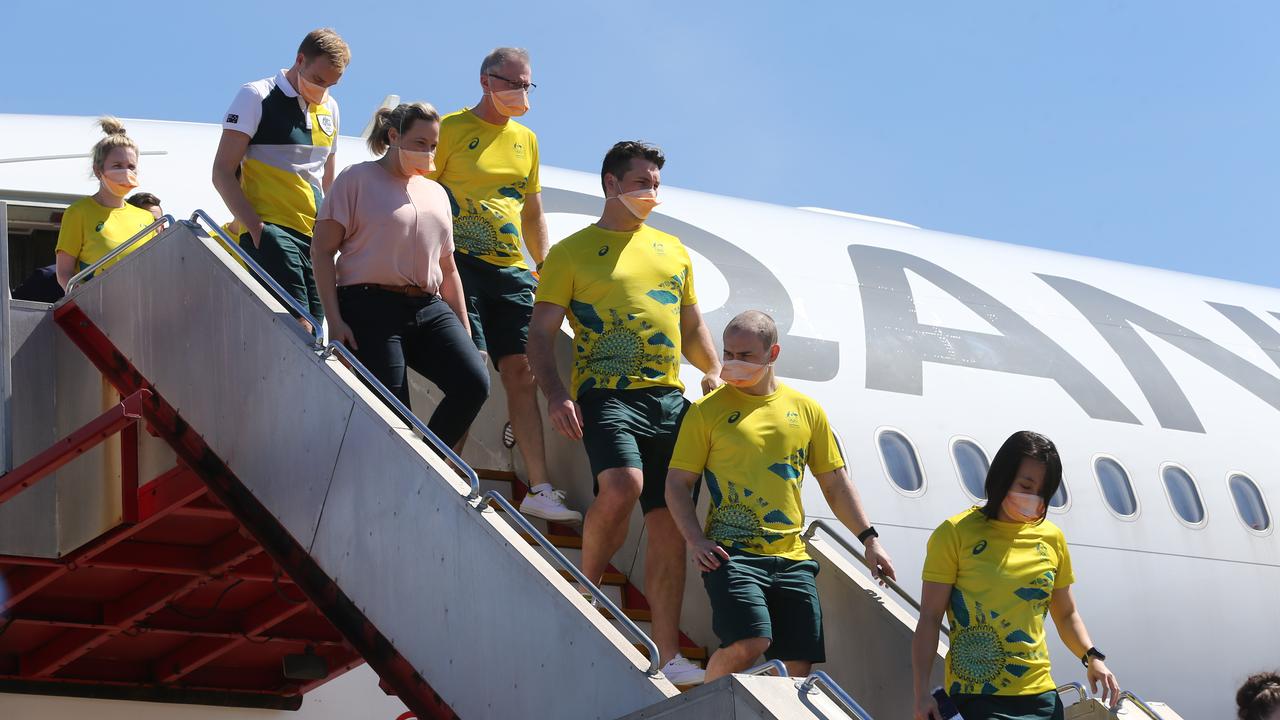
The official, who has not been named, had interaction with a number of athletes, the Australian Olympic doctor David Hughes confirmed.
Dr Hughes said that out of an abundance of caution, everyone in the track and field camp was immediately placed into isolation in their rooms, and not just those athletes that the official had interacted with.
He said the quarantine period for the athletes lasted from around midday on Saturday until late Saturday evening.
He said Athletics Australia had implemented extra testing protocols above those required.
The official involved has since had two negative tests, but was undergoing a final test before being allowed to rejoin the team.
Dr Hughes said that the incident shows that while some people may believe the Covid countermeasures and systems were “overcooked”, that the meticulous process of Athletics Australia had helped protect their athletic cohort.
He said “you can’t be complacent and that all the processes in place to protect the athletes. It isn’t for show, and when you do it right, it works.’’
One hundred and forty seven Australian athletes – mainly rowers and swimmers – have arrived in Tokyo off the special charter flight from Cairns and were greeted by chef de mission Ian Chesterman at the Olympic village at 3am on Sunday after a lengthy processing through Narita airport.
In a special treat for the team, Olympic officials have set up their own coffee station in the Australian headquarters, with assistant team manager Susie O’Neill, who is as skilful as a barista as she was a star butterflier, voted to be as a special guest coffee maker.
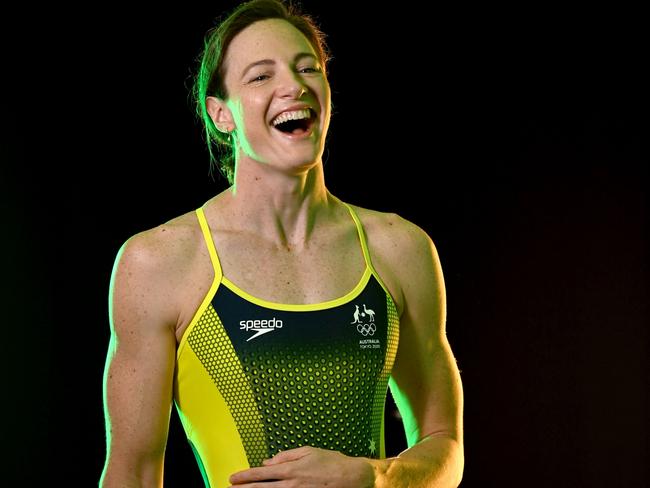
In total 194 Australian competitors have checked into the athletes village, with another 49 athletes in sub sites and training camps around Japan.
Delays at Tokyo’s two main airports were being reported of more than eight hours as 4000 athletes are scheduled to arrive on Sunday and Monday.
It was also revealed that Cate Campbell will have a special collapsible chair to rest her legs if there are any delays or waiting around during the opening ceremony. Chesterman said he had consulted Campbell and the other flag bearer Patty Mills to ensure they felt comfortable about not impacting on their performances.
Chesterman said both flag bearers “know and accept it (Covid risk and delays) are not totally controllable, but they understand this”. He added that the incredible adrenaline rush could give them a further incentive to improve their results.
‘Scepticism’ to greet Olympians as Tokyo tensions flare up
International Olympic Committee president Thomas Bach has pleaded with the Japanese to welcome and support the thousands of athletes at the Tokyo Olympics, saying the vibe in the capital was “sceptical” and “aggressive”.
“I ask and invite the Japanese people to welcome the athletes, they are sharing the pandemic with the Japanese people and like Japanese people they have overcome so many obstacles to be here finally,’’ Bach said.
In the first signs of a public fracturing of the IOC-Japanese united front, Bach noted how there were near full stadiums of sport being conducted in Tokyo at the moment.
Under the emergency regulations in Tokyo, professional baseball and football, as well as basketball, are being played in front of crowds of up to 5000.
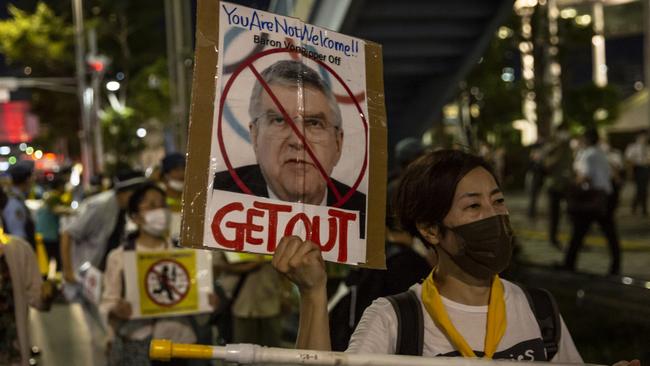
In a basketball game showing on Saturday evening, the match even featured cheerleaders. This is a stark contrast to the soul-less atmosphere of the Olympic venues that has been imposed by the Japanese government.
Bach said in a press conference after the IOC executive board meetings: “I am very well aware of the scepticism of obviously a number of people in Japan and we learn this through the media who is elaborating on this very diligently.
“My appeal to the Japanese people is to welcome these athletes here for the competition of their lives and to acknowledge that it is not for any price these athletes are coming here.
“They have the same interest as the Japanese people in making these games safe and secure and they accept and even welcome the restrictive measures to make the Olympic Games the most restricted sports event, not only in Japan but in the entire world.”
Bach said the opposition was part of a democracy and acknowledged that there would not be 100 per cent support, but said the stress of the pandemic is resulting in ‘’some scepticism”.
He appealed to the Japanese to look at the current situation in Tokyo where sports events were being conducted.
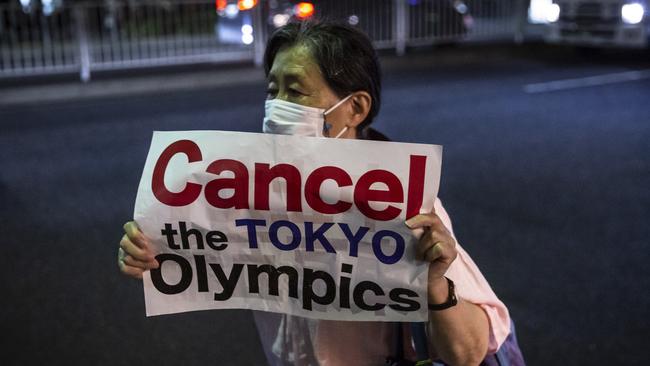
“You can organise sports events and if you look to the many (professional televised) sports events underway now in Japan and In Tokyo, hopefully once you see the Japanese athletes performing well (at the Olympic Games), the attitude may become less emotional, less aggressive,’’ he said.
Wakako Yuki, a long time Olympic journalist from the Yomimuri Shimbun said she was shocked and ashamed to be a Japanese person because the IOC president has had to ask for support. “I am ashamed to be Japanese as there is a belief that the Japanese people would show anything other than deep respect for the athletes,’’ she said.
“The athletes are not the enemy, they are the victims too, just like the Japanese people.
“I have covered 13 Olympics and I have never heard the Olympic president asking the local people for support before.”
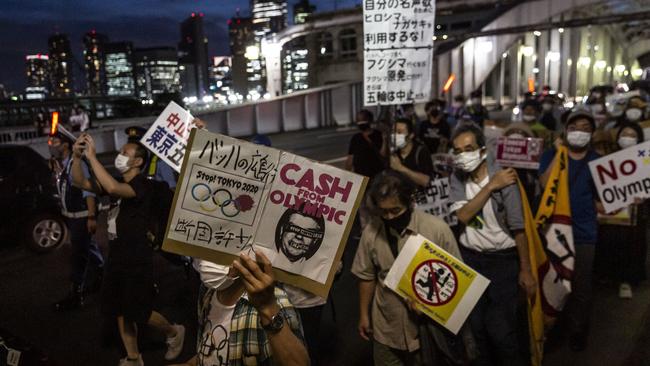
The IOC was looking at ways to make the global broadcasts as interesting and appealing as possible without crowds in the venues, including having selected athletes talk directly to family and friends back at home immediately after their events.
Mr Bach said: “athletes will be supported in their competitions with sound created from previous Olympic Games related to their specific competition. All this is an effort to bring the vibe of the world into the living rooms. There are billions of people who will follow these Olympic Games on broadcasting or digital media platforms and for sure it will be, the most followed games in Olympic history.
“Billions of people around the globe will admire the athletes and support the athletes, but they will also admire the Japanese people for what they have achieved in the circumstances in Japan right now.”
Games city on knife edge as Covid cases spike
Australia’s Olympic preparations have been thrown into chaos less than a week before the opening ceremony with two medal prospects — tennis player Alex de Minaur and Opals basketball player Liz Cambage — ruled out of the Games and further confusion surrounding the Boomers exposure to Covid-19.
As Tokyo heads into the Olympic Games this week battling a spike in Covid infections and with the Japanese government resisting a full lockdown, the enormity of staging the biggest sports gathering in the world amid a pandemic is starting to impact on athletes’ preparations.
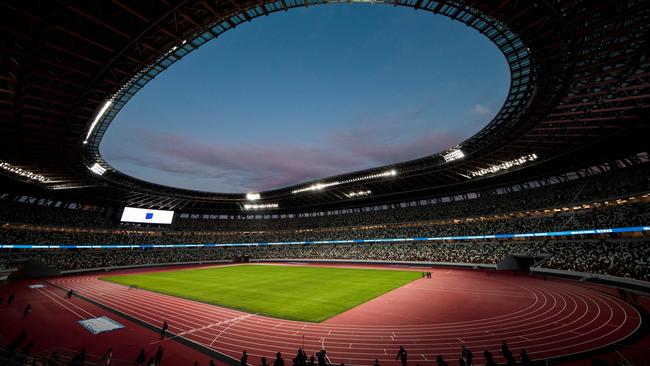
With 90,000 athletes, officials and journalists arriving into Tokyo for the staging of the Games, the Japan Government is desperately trying to prevent it turning into a super-spreading event, banning spectators, putting visitors into social bubbles and urging residents to stay out of the city and work and study remotely.
On Friday the government banned the public from the Tokyo Bay area, where festivities and fan zones had been planned.
But the tension for all concerned is mounting.
Strict measures designed to create a secure bio-bubble around the 11,000 athletes are already showing signs of cracking, as a cluster of hotel workers testing positive in the pre-Games hotel hosting some of the Brazilian team quickly highlighted athletes’ vulnerability to volunteers in the Olympic village.
Chef de mission Ian Chesterman said the cleaners in the Australian accommodation at the Olympic village were being tested daily.
But that will be of little comfort if a worker exposes Australian athletes to the virus shortly before their competition.
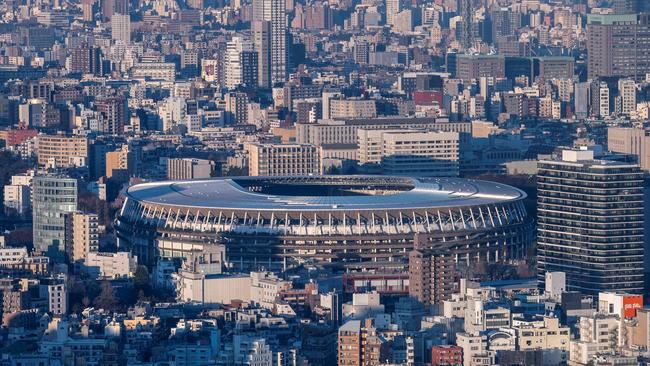
De Minaur was shattered to have been ruled out after two positive tests before boarding his flight from Spain, while Cambage says her heart is broken after suffering panic attacks and anxiety leading up to the Games.
The spearhead of the Opals team was involved in an ‘incident” with Nigerian players earlier in the week and withdrew because of the pressure trying to control her anxiety.
She said: “It’s no secret that in the past I’ve struggled with my mental health and recently I’ve been really worried about heading into a ‘bubble’ Olympics. No family. No friends. No fans. No support system outside of my team. It’s honestly terrifying for me. The past month I have been having panic attacks, not sleeping and not eating.
“Relying on daily medication to control my anxiety is not the place I want to be right now.”
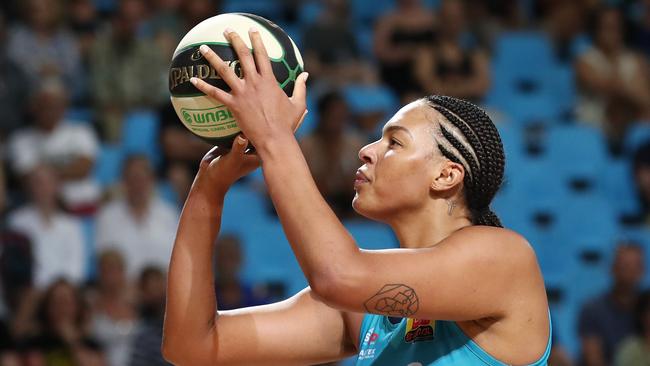
The Boomers, currently in camp in Las Vegas, cancelled a planned exhibition match against Team USA, after the Americans isolated two players because of Covid-19.
The Australians have tested negative, but can’t take the risk of further exposure so close to travelling to Japan.
There has been widespread confusion about how the Japanese will handle teams and athletes who come in contact with Covid-19 positive cases: with suggestions that athletes may have to show a negative test within six hours of competition to be allowed to compete.
It is still unclear how many dignitaries and VIPS will be allowed to sit in the stadium for the opening ceremony with the media told this week that the heavily reduced numbers are being further cut. Only six team officials will be allowed to march with the Australian team. Around 50 of the 474 Australian contingent have indicated they will be available to march in what will be the most low-key and muted opening ceremony in recent history.
The flip-flopping of rules is not just confined to the Games, with the Suga Government quietly reversing a series of policies it had developed seeking to limit commercial activity in and around the city.
It apologised for any embarrassment of earlier plans to “ask’’ alcohol suppliers to stop supplying restaurants and bars which refused the government’s requests not to serve alcohol.
It also decided not to continue to ask banks to help pressure restaurants into complying with the no-alcohol request.
Despite Covid infections spiking in Tokyo — the city reported 1308 cases on Thursday, the highest number in six months — the central government has declined to introduce a hard lockdown.
There was confusion among international delegations about what role Japan’s Constitution, a progressive document written after World War II which enshrines a bill of rights for individuals, as well as other restrictions on Government powers, had on the Government’s decision-making around Covid.
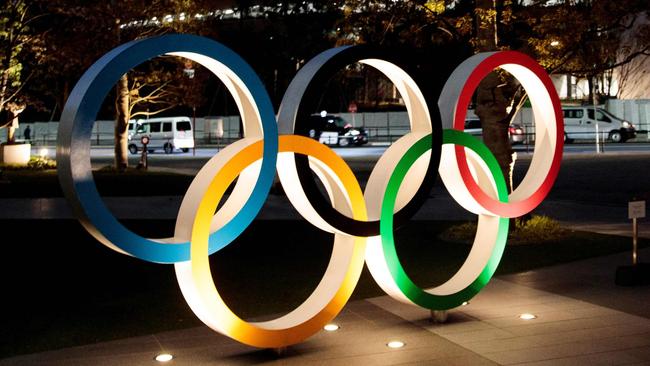
Australian AOC president and IOC vice-president John Coates said he understood obligations imposed by the Constitution were part of the reason Tokyo’s 14 million resident had not been placed into hard lockdown.
“Here, they haven’t had the tracing or closing down of cluster areas like Australia and this is because of the Constitution post-World War II,’’ he said.
“As I understand, the ability to regulate people … and police people was taken away.
“The Japanese have an aversion to this style of regulation post WWII and now it is in their constitution.’’
But Koichi Nakano, a politics professor at Tokyo’s Sophia University, said the Constitution did allow for a hard lockdown.
“In fact, the government also passed a new Covid special measures law that grants the government power to order business shutdowns or to confiscate property to build medical facilities,’’ he said.
“What the Constitution does not allow is the exercise of unchecked, arbitrary executive power without respect to basic rights and freedoms, but as long as there is matching compensation — all that is needed is legislation, not constitutional amendment.
Professor Nakano said the Government had harsher measures available to it under the Covid special measures law but had so far declined to use them.
“This seems to be in part because the government doesn’t want to provide matching financial compensation, and also in part because they are fearful of the economic impact of a harder lockdown,’’ he said.
“Finally, the Japanese people are generally orderly and law-abiding, and even conformist, so even the very mild Government measures have been met with extraordinarily high degree of co-operation.
“Very clearly, more coercive intervention was never sought by the Government, and if anything, it was the people and the opposition that have been pushing the Government to take more drastic measures faster.’’
Boomers caught up in Covid scare as Tokyo fears grow
Discussions are underway to potentially cancel Australia’s final Olympic exhibition game against Team USA on Saturday due to Covid-19 concerns.
The Americans are facing a Covid crisis on the eve of the Tokyo Olympics, with guard Bradley Beal ruled out of the Games after being placed in Covid protocol on Thursday.
US forward Jerami Grant has also been placed into protocol out of precaution.
Kayo is your ticket to the best local and international sport streaming Live & On-Demand. New to Kayo? Try 14-days free now >
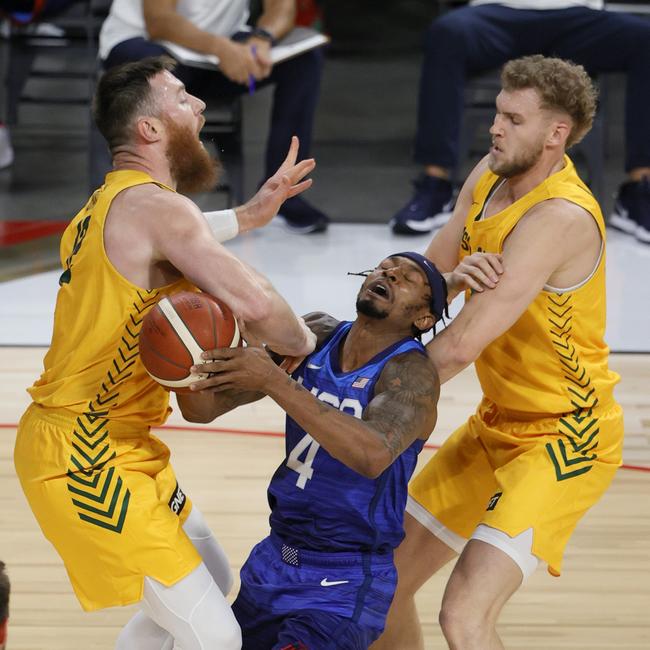
Thankfully for the Boomers, all players and staff returned negative tests on Thursday.
Australia is set to play Team USA on Saturday morning from 8am (AEST).
There is still a lingering doubt about whether any Australian players, if classed as being potentially exposed, could put additional quarantine restrictions onto the Boomers team when they arrive into Tokyo for the Games.
Team USA is in a struggle with COVID as one player is out of Olympics (Brad Beal), another is in protocols (Jerami Grant) and now there are discussions underway about canceling tomorrow's game with Australia, sources tell @OlgunUluc & me
— Brian Windhorst (@WindhorstESPN) July 15, 2021
Meanwhile, an unidentified athlete as well as five Olympic contractors have tested positive for the coronavirus a week before the Olympic Games open on July 23.
Tokyo 2020 organisers said the new positive cases are in addition to the cluster of positive tests from eight staff in the hotel hosting Brazil’s Olympic judo team in Hamamastu city.
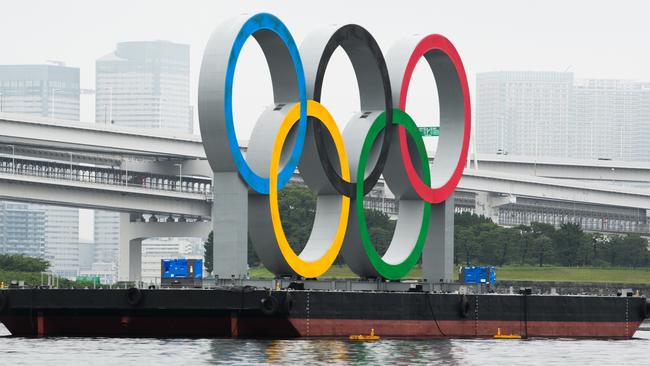
The samples from the hotel workers were taken on the weekend before the 30 strong Brazilian contingent checked in and the team is believed to have not come into contact with the infected workers.
The Covid quarantine rules have been confusing in Tokyo with mixed messaging about the length of any isolation that must be undertaken if athletes are exposed to a positive case. Tokyo Olympic officials say they assess each situation individually, taking into account their vaccination record, previous test results and ongoing health.
The Boomers are set to play Team USA again in their final exhibition game on Saturday morning before heading to Tokyo.
At the moment Russia’s Rugby Sevens team is in isolation after their masseur tested positive.
They may be released as soon as this weekend if further tests are negative.
The South African men’s sevens team is also awaiting test results after a person on their plane, believed to be a Mozambique team member, tested positive upon arrival at the airport in Japan.
The identity of the athlete who has tested positive is uncertain, and it is unclear if this is the same infected person from Mozambique. Organisers said they couldn’t provide the team identity of the athlete for privacy reasons.
Organisers had announced on Wednesday that three people, including two Ugandan team members had tested positive out of 8000 arrivals into Tokyo this month.
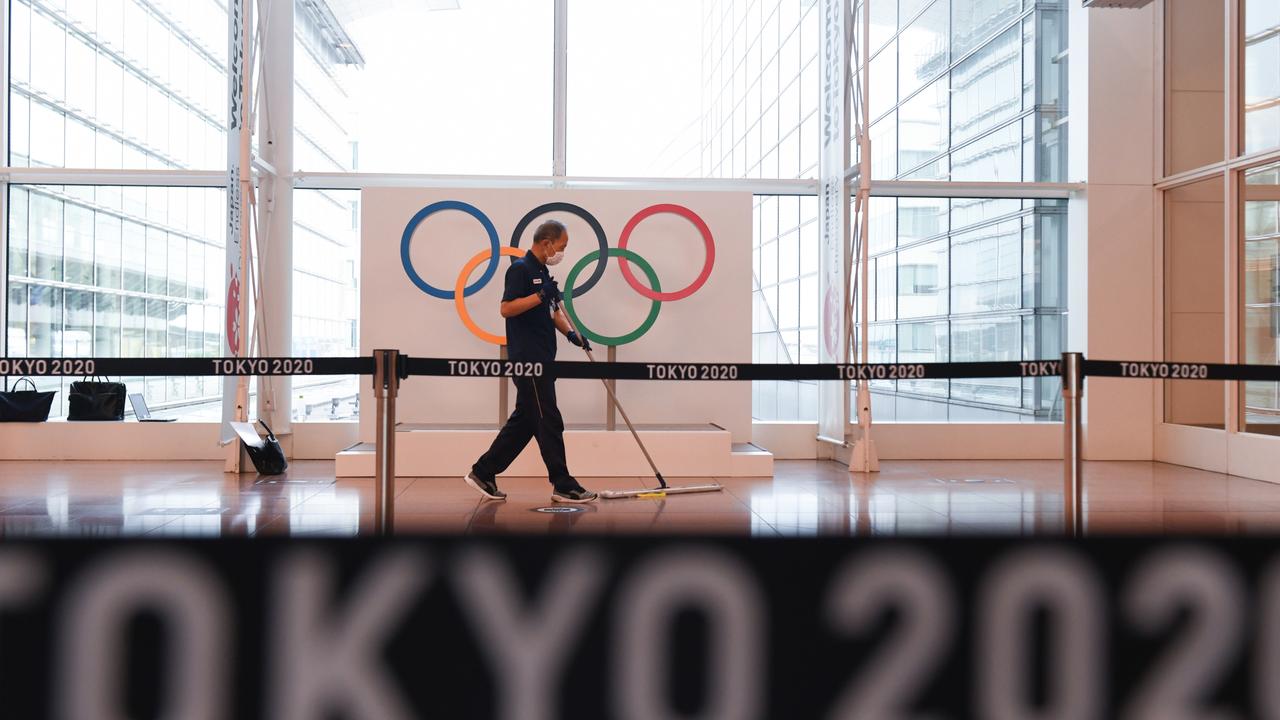
All travellers have to have negative Covid tests before boarding flights to Japan.
The news that Olympic workers and hotel staff have tested positive highlight the risks to the athletes. While most athletes have been vaccinated, being in close contact with a positive case could result in several days of isolation for further testing, impacting on their training and competition.
Dream Team rocked by Covid scare, star pulls out of Tokyo
Dan Evans, the top-ranked British male tennis player, said on Wednesday that he has withdrawn from the Olympics after testing positive for Covid-19.
“I will not be able to prepare and get myself ready for the Olympic Games in Tokyo,” Evans posted on social media.
The 31-year-old is 28th in the ATP rankings.
“I am hugely disappointed and currently self-isolating according to guidelines set out by the government,” he wrote, Evans had been selected to play in the singles in Tokyo along with reigning Olympic champion Andy Murray and to partner Neal Skupski in the doubles.
“I want to wish the entire GB team all the very best for the games and look forward to being back on the court in the near future,” he concluded.
Roger Federer, Rafael Nadal, Serena Williams and Dominic Thiem have all pulled out of the Olympic tennis, while newly-crowned Wimbledon champion Novak Djokovic put his chances of playing in Tokyo at “50/50”.
Evans’ withdrawal comes one day after another British star, Johanna Konta, announced she would not be competing due to Covid-19.
The games have been rocked by reports of a cluster outbreak at the Brazilian team hotel.
Up to 31 members of the South American nation’s team are believed to be staying at the venue.
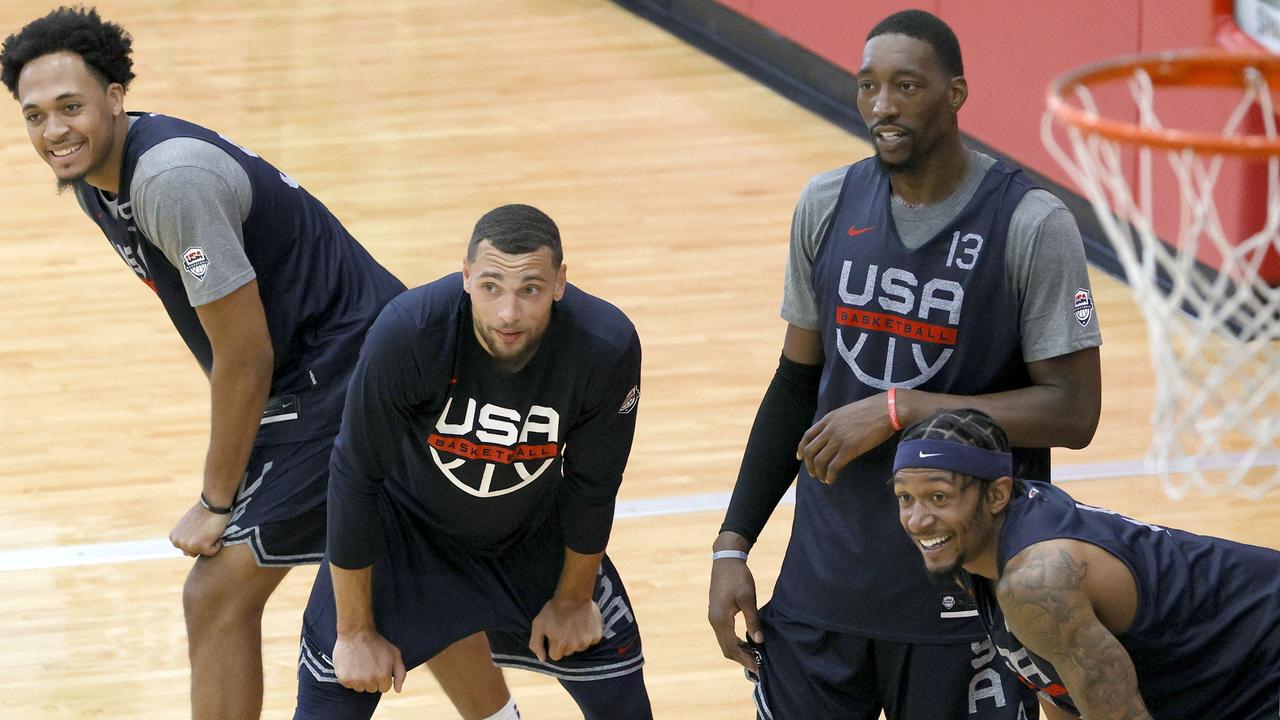
DREAM TEAM ROCKED BY Covid SCARE
A member of the US Olympic men’s basketball team has been placed in Covid-19 health and safety protocols, USA Basketball confirmed on Wednesday.
Officials did not release the name of the player, but The Athletic reported it was Washington Wizards All-Star guard Bradley Beal.
It was not clear whether the player had tested positive for coronavirus or was placed in the protocols because of potential exposure.
The news comes 11 days before the Americans are scheduled to play their first game at the Tokyo Olympics on July 25.
The team is training in Las Vegas and played a friendly against Argentina on Tuesday. Beal scored 17 points, matching Kevin Durant as the top scorers in the contest, a 108-80 victory for the United States.
Beal has started all three of the United States’ pre-Games friendlies in Las Vegas.
The reigning Olympic champions had been jolted by losses to Nigeria and Australia before beating Argentina.
More Coverage
Originally published as Tokyo Olympics: Softball team discovers it carries special status in Japan after odd phone calls






